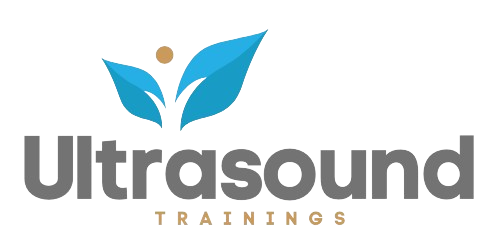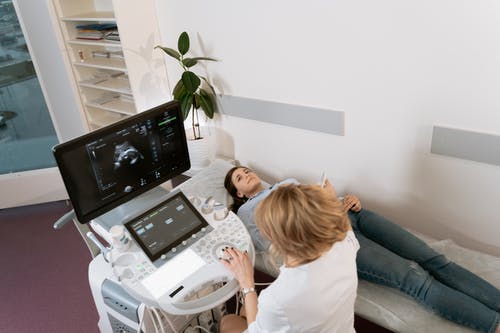In today’s fast-paced healthcare environment, the demand for accurate, timely diagnostics has never been higher. Point-of-care ultrasound (POCUS) has emerged as a game-changing tool, offering healthcare professionals a portable, non-invasive, and highly effective method of diagnosing and monitoring a wide variety of conditions. From emergency departments to outpatient clinics, POCUS is revolutionizing patient care and improving clinical outcomes.
However, like any medical technology, ultrasound techniques and protocols are continuously evolving. For healthcare professionals who incorporate POCUS into their practice—whether they are doctors, nurse practitioners, physician assistants, or other specialists—staying current with the latest advancements is crucial to providing optimal care. This is where continuing education comes in.
In this blog post, we’ll explore the importance of continuing education for point-of-care ultrasound, why it’s essential for healthcare professionals, and how you can maintain your skills throughout your career.
Why Continuing Education for Point of Care Ultrasound Matters
1. Rapid Technological Advancements
Ultrasound technology is constantly evolving, with new imaging techniques, advanced probes, and software updates being released regularly. These improvements help increase the accuracy of diagnoses, enhance the speed of image acquisition, and expand the range of conditions that can be detected.
For example, the development of high-resolution imaging, 3D/4D ultrasound, and Doppler ultrasound capabilities has expanded the potential applications of POCUS, from prenatal care to musculoskeletal imaging and critical care.
What This Means for Professionals: To maintain proficiency and ensure that you’re using the most up-to-date technology, ongoing training is essential. Without it, clinicians risk relying on outdated methods, which could result in less accurate diagnoses and missed opportunities for patient care improvements.
2. Evolving Best Practices and Protocols
The field of point-of-care ultrasound is still relatively new compared to other diagnostic tools like X-rays or CT scans. As more studies are conducted and more clinicians use POCUS, best practices, protocols, and clinical guidelines continue to evolve.
For instance, in the emergency department, protocols for assessing trauma or abdominal pain using POCUS may change as new evidence emerges. Similarly, advancements in ultrasound-guided procedures, such as joint injections or nerve blocks, may require updated training on the latest techniques.
What This Means for Professionals: To provide safe, effective care, healthcare providers must stay current with these changing best practices. Continuing education helps ensure that clinicians are using the latest evidence-based guidelines and protocols in their everyday practice, reducing the likelihood of errors and improving patient outcomes.
3. Expanding Scope of Practice
As the use of POCUS continues to grow, healthcare professionals are increasingly incorporating ultrasound into a wider variety of clinical scenarios. For example, nurse practitioners and physician assistants are often gaining the ability to perform more advanced ultrasound procedures, such as venous access or intra-abdominal imaging, as part of their scope of practice.
What This Means for Professionals: Continued education provides an opportunity to expand your skill set and broaden your scope of practice. With additional training, you can perform more advanced procedures, offer better care to patients, and even open up new career opportunities in specialized areas of healthcare.
4. Improving Diagnostic Accuracy and Patient Care
The ultimate goal of continuing education in POCUS is to improve patient care. The more skilled a healthcare professional is at performing and interpreting ultrasound studies, the more accurately they can diagnose and treat their patients.
Studies have shown that healthcare providers who receive ongoing ultrasound training perform better in clinical settings, leading to faster diagnoses, more accurate results, and more confident clinical decision-making.
What This Means for Professionals: By committing to lifelong learning, you can increase your diagnostic accuracy, make quicker decisions, and enhance the overall quality of care you provide to your patients. Furthermore, the trust and confidence you build with your patients can help foster better relationships and improve patient satisfaction.
5. Meeting Credentialing and Certification Requirements
In many healthcare settings, ultrasound competency is tied to specific certification and credentialing requirements. To maintain certification or to stay compliant with hospital or institutional guidelines, healthcare professionals often need to demonstrate a certain level of proficiency and complete ongoing education.
For example, ultrasound training and continuing education are frequently required for certification through organizations such as the American Registry for Diagnostic Medical Sonography (ARDMS) or the American College of Emergency Physicians (ACEP).
What This Means for Professionals: Ensuring you meet ongoing educational requirements is key to maintaining your certification and keeping your qualifications up to date. This is not only a professional requirement but also an important way to demonstrate your commitment to high-quality care.
How Can Healthcare Professionals Continue Their Education in Point of Care Ultrasound?
1. Formal Courses and Workshops
Many organizations, including universities, medical societies, and professional ultrasound groups, offer formal training programs, workshops, and certification courses designed to enhance ultrasound skills. These may include:
- Basic and Advanced POCUS Courses – These courses provide essential knowledge on performing and interpreting various types of ultrasound exams, from cardiac to abdominal to musculoskeletal.
- Specialized Workshops – These workshops focus on specific ultrasound applications, such as vascular access, musculoskeletal imaging, or obstetric ultrasound.
- Certification Programs – Programs like the ARDMS or ACEP certifications offer structured pathways to becoming a certified ultrasound practitioner, with periodic recertification requirements.
2. Online Learning Platforms
For busy professionals, online learning platforms are an excellent option for continuing education. Many platforms offer flexible, self-paced ultrasound courses, ranging from introductory training to specialized advanced topics. Online platforms may also include webinars, tutorials, and virtual workshops to keep you engaged with the latest practices.
Benefits of Online Learning:
- Flexible, on-demand learning
- Access to up-to-date information from industry leaders
- Interactive case studies and simulations for hands-on learning
3. Peer-to-Peer Learning and Mentorship
One of the best ways to learn is by interacting with experienced colleagues who can offer advice, feedback, and mentorship. Many healthcare organizations foster a collaborative learning environment, where less experienced clinicians can observe or work alongside more seasoned ultrasound professionals.
How to Incorporate Peer Learning:
- Shadowing experienced clinicians or mentors
- Participating in regular team meetings or case discussions
- Engaging in collaborative learning with colleagues in your healthcare setting
4. Attending Conferences and Seminars
Healthcare conferences and seminars offer opportunities for professionals to learn about the latest trends and developments in point-of-care ultrasound. These events often feature hands-on workshops, keynote speakers, and networking opportunities to stay connected with experts in the field.
Why Attend Conferences?
- Exposure to cutting-edge ultrasound techniques and innovations
- Opportunities to meet and network with other ultrasound professionals
- Continuing education credits and certifications for attending sessions
Conclusion: Lifelong Learning in Point of Care Ultrasound
As ultrasound technology continues to advance and expand its role in healthcare, it’s crucial for professionals to commit to ongoing education. Point-of-care ultrasound is a powerful tool that can enhance diagnostic accuracy, improve patient care, and broaden a clinician’s scope of practice. However, to reap these benefits, it’s essential to stay up-to-date with the latest techniques, technologies, and best practices.
For healthcare professionals eager to keep pace with the rapidly evolving field of ultrasound, continuing education offers the opportunity to enhance your skills, grow your career, and deliver the best possible care to your patients. By investing in your professional development, you not only improve your own expertise but also contribute to the advancement of the entire field of point of care ultrasound. If you’re looking for the best ultrasound training programs, Ultrasound Trainings offers comprehensive continuing education opportunities to help you stay ahead of the curve in this exciting and rapidly evolving field. Contact us today to learn more!


